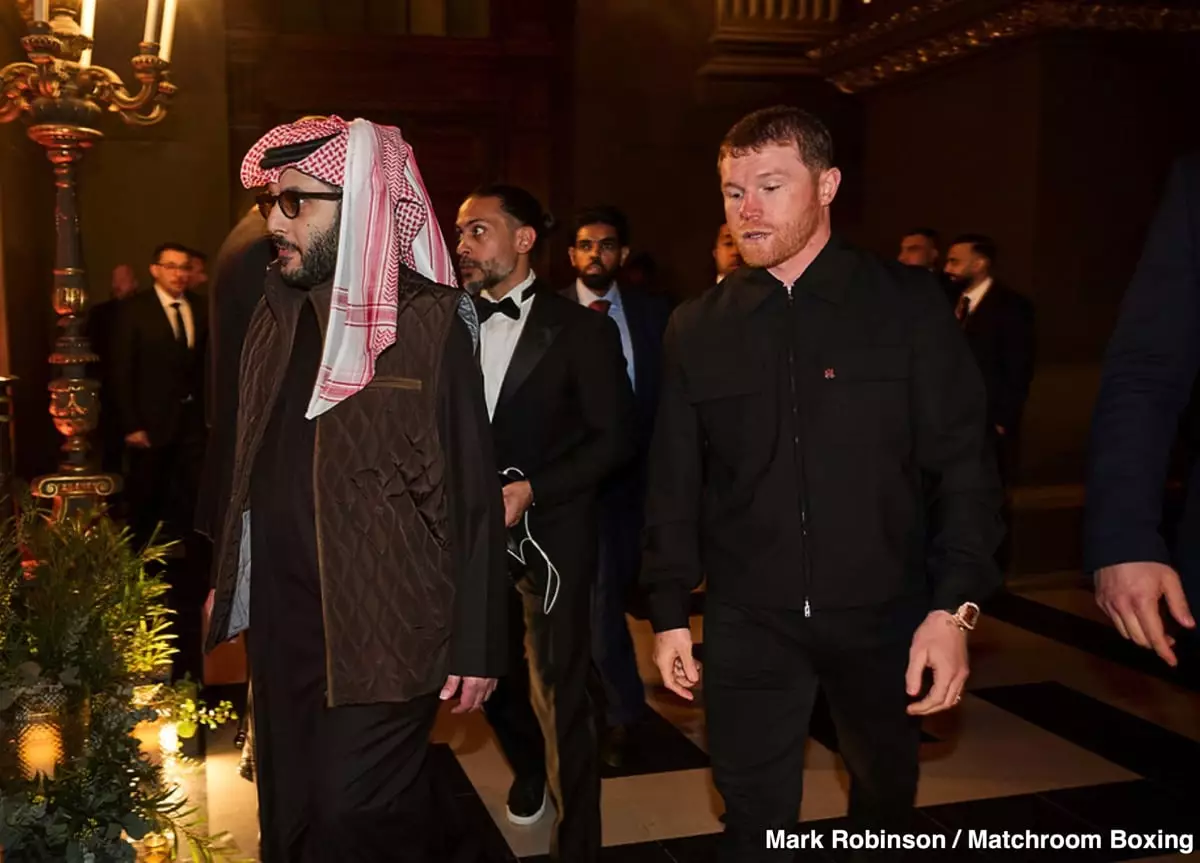In recent conversations about the evolution of boxing, Mikey Garcia illuminated a pivotal shift in Canelo Alvarez’s mentality as he gears up for his May 3rd fight against IBF super middleweight champion William Scull in Riyadh. With an anticipated showdown against Terence Crawford looming in September, Alvarez’s focus appears to be less about legacy and more about financial gain. This transition from title-chasing to wealth accumulation not only marks a significant change in Alvarez’s career trajectory but also underscores the evolving landscape of the sport itself, where monetary incentives are often prioritized over accolades.
The Financial Upsurge
Garcia’s proclamation that Alvarez’s net worth might multiply from an estimated $200 million to an astounding $400 million post-fight underscores a critical phenomenon in modern boxing: the lucrative nature of high-profile fights in regions like Saudi Arabia. The financial backdrop of these matches is astounding, often outweighing the historical significance of the titles. As Alvarez eludes the traditional championship aspirations that once defined boxers, he finds a new ally in money—an ally that promises not only immediate gratification but also long-term generational wealth.
While this approach may incite skepticism regarding the integrity of competitive spirit, it reflects a broader transition in boxing where the balance sheet often takes precedence over hall of fame aspirations. Canelo’s potential $400 million payday signals that the richest rewards in boxing may lie outside the realm of pure sport, raising questions about what future generations of fighters will prioritize: titles or total payout?
Implications of the Saudi Influence
Alvarez’s association with Riyadh’s burgeoning boxing scene illustrates a larger trend where geographic areas are investing heavily into the sport to elevate their global profile. Saudi Arabia has emerged as an epicenter for boxing events, enticing fighters with massive financial incentives that dwarf traditional purses found in other markets. As Garcia notes, the Saudis’ desire to facilitate an undisputed championship bout elevates Alvarez’s standing not only as a fighter but as a tremendous draw in the sport, further tightening the grip of money on competition.
What this proves is that fighters like Alvarez are not just athletes; they are now entertainers in a global marketplace where their financial worth can very easily overshadow their sporting achievements. The Saudi influence paves the way for a new class of boxing that is intrinsically linked to economic power rather than legacy building. In this context, Alvarez’s decision-making becomes less about proving his skill against rivals and more about maximizing financial opportunity.
The Upcoming Challenges
As Alvarez eyes his next opponents—first Scull and then Crawford—there are significant challenges that come with that alluring financial tide. While Crawford may boast skills that have garnered respect in the boxing community, the conversation shifts when gauging his ability to contend against Alvarez, who continues to stand as a formidable force. Garcia’s insights remind us that at 38, Crawford may face an uphill battle in scaling up to super middleweight, especially against someone known for raw power and relentless aggression.
Boxing aficionados have grown accustomed to narratives surrounding fighters clashing in ring strategies—the crafty boxer against the brawler. However, as discussions pivot from pure skill sets to monetary prospects, the essence of competition stirs existential questions about the future of the sport. Has boxing morphed into a form of high-stakes entertainment where fighters become pawns to be strategically maneuvered for maximum profit?
The implications of Canelo Alvarez’s current situation reflect a significant turning point in boxing—a departure from the glorification of championships toward the acknowledgment of financial supremacy. As he pushes toward earning substantial payouts and securing wealth for future generations, the sport is becoming defined by allure and monetary rewards instead of just the grit and labor that once dictated its charm. This transformation may well signal a new paradigm in boxing that could reshape the ambitions of upcoming talents and redefine what it means to be a champion in the ring.


Leave a Reply